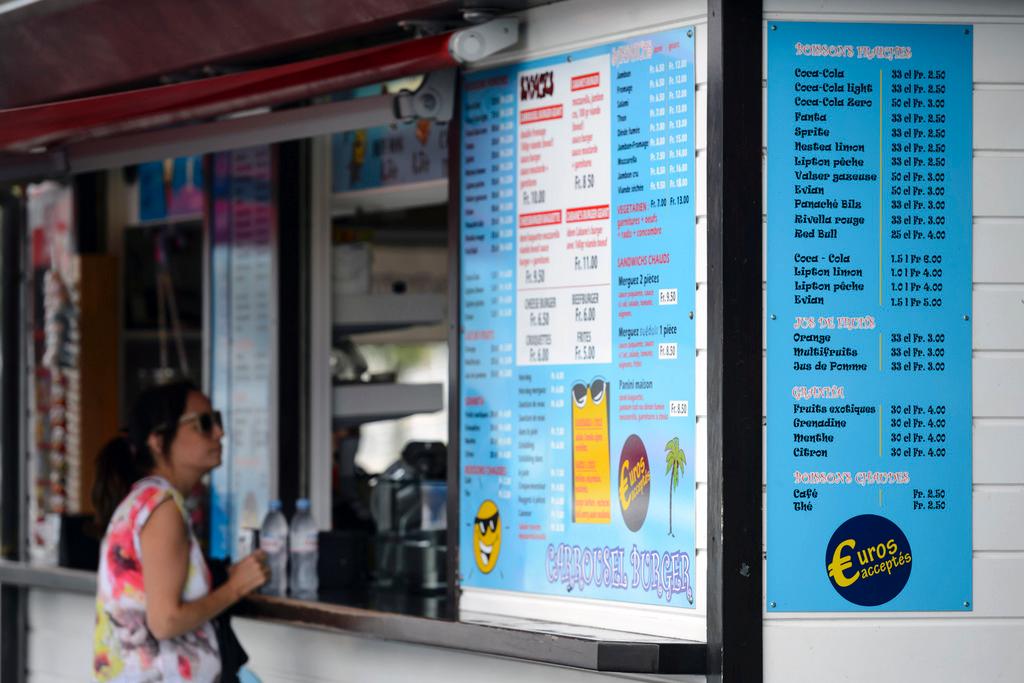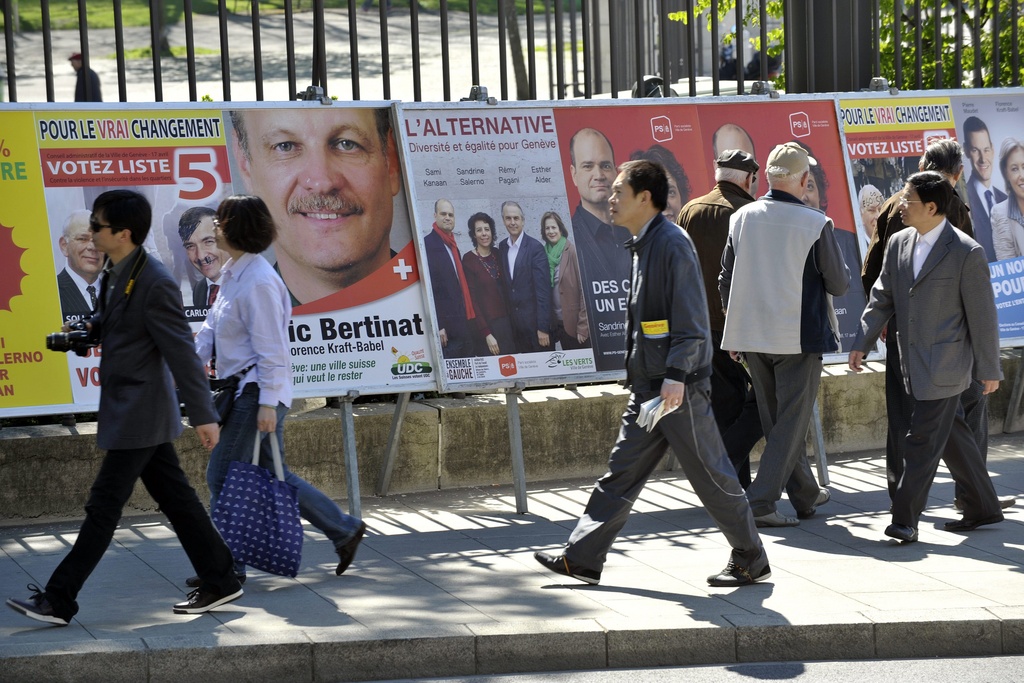Transparency in politics has no majority appeal

The latest Swiss call for full transparency in politics was nipped in the bud as voters in canton Aargau on Sunday rejected an initiative seeking to shed light on campaign financing and politicians’ financial entanglements.
The voters rejected the proposal for the disclosure of funding in politics by the young Social Democrats with 55.7% no votes.
The idea of having to disclose income, wealth and conflicts of interest when running for office in the canton and the municipalities was the most extreme such proposal in Switzerland yet – particularly in combination with second requirements that require political parties, initiative committees and lobby organisations to come clean about their financing.
Only the cantons of Geneva and Ticino have binding standards regarding the financing of political parties as well as election and public vote campaigns, but they do not go as far as the proposal in Aargau. On a national level, there are no provisions on transparency in politics.
Previous failures
The initiators knew it would not be easy to win a majority. The same party had already failed to convince voters in canton Basel Country in June 2013, when a much more watered-down version of the same idea was rejected with 57% against. Other moves on a national level also fell through.
A federal initiative demanding the disclosure of politicians’ income ran aground at the end of 2012 because the initiators – a committee composed of individuals from different parties – were not able to collect enough signatures. One of the most prominent proponents at the time was Lukas Reimann of the rightwing Swiss People’s Party.
His party, along with centre-right parties like the Radical Party and the Christian Democratic Party, are usually the main opponents when it comes to calls for disclosure and transparency today. They had rejected this latest proposal in canton Aargau unanimously because they considered the proposal too drastic.
They were also concerned that such requirements would make it even more difficult to find suitable candidates because public figures in Switzerland prefer to keep a low profile – particularly about their financial conditions.
The cantonal government also recommended voters reject the initiative. Their main argument was that implementation would be too difficult because the required control mechanisms would be too cumbersome and expensive. That recommendation is not so surprising, as not only new candidates – but also existing office holders – would have to go through an annual finance check.
Fighting corruption
However, Sascha Antenen, head of the young Social Democrats in Aargau – on the initiators’ side – was fighting to bring more light into the darkness. In his eyes, his party’s proposal was a way to make sure that politicians pursue policies that are in the interest of a majority – and not of a small privileged minority consisting of big businessmen and the super-rich.
“They can effectively buy up entire parties – via donations, board memberships or bribe money,” Antenen wrote in a blog in August. “Transparency goes with real democracy – a lack of transparency is the breeding ground for corruption.”
The proposal in canton Aargau was backed by the Social Democratic Party, the Green Party and the Swiss Federation of Trade Unions, which all wanted the canton to take a pioneering role for the entire country.
And there is also pressure from outside the country. The Council of Europe’s Group of States against corruption (GRECO) is urging Switzerland to deal with party funding. By the end of March 2015, the Swiss cabinet will have to report back to GRECO to explain its position.
The Young Socialist Party, which backed the initiative, said after Sunday’s vote that the close result indicated that many Swiss clearly desire transparency in political financing. The party is advocating that the issue be examined more closely across the country.
Vote results in the cantons
Basel City and Basel Country won’t merge: The two Basel cantons won’t become one after a vote on September 28 where 68.3% of voters in Basel Country said no to the beginning of merger negotiations. Supporters of the merger had argued it would save both cantons money, politicians against the measure argued citizens of Basel Country should preserve their rural identity and not fuse themselves to a city.
Lake Geneva tunnel blocked: Voters in canton Geneva rejected plans to build a new 1.5-kilometre-long road tunnel under the lake. A total of 63% of voters turned down the initiative.
Electing foreigners: Canton Jura has voted 54% in favour of allowing foreigners to hold seats in government, while canton Schaffhausen 85% of voters said no to a proposal that would have allowed some non-Swiss to vote.

In compliance with the JTI standards
More: SWI swissinfo.ch certified by the Journalism Trust Initiative













You can find an overview of ongoing debates with our journalists here . Please join us!
If you want to start a conversation about a topic raised in this article or want to report factual errors, email us at english@swissinfo.ch.